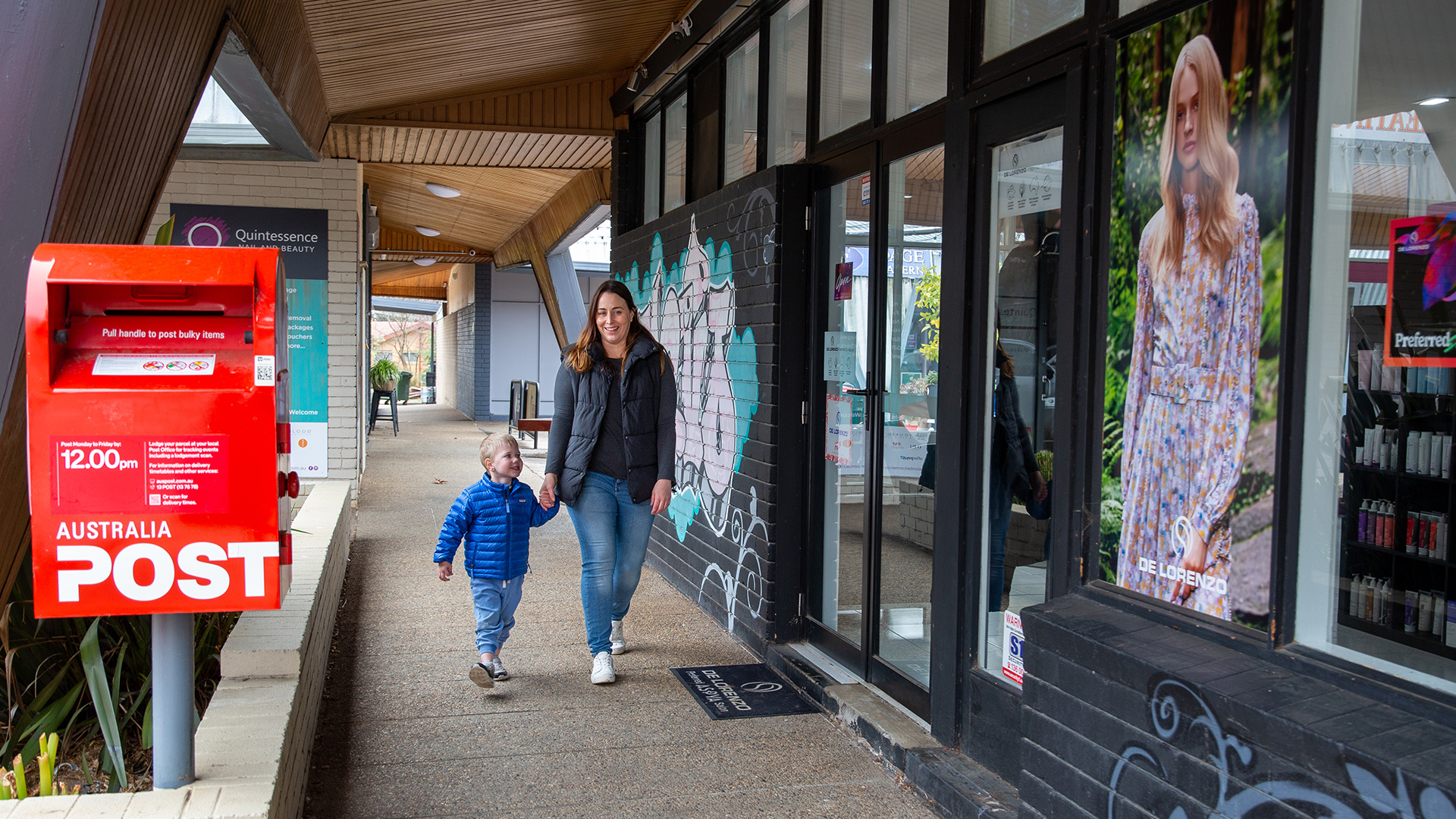
Jen is a Principal at an ACT public school.
24 April 2024
Jen remembers the day she decided to become a teacher. She was in year 7 and knew someone whose mum was a teacher who worked with young people with disabilities.
“I just remember seeing what she would do and how she would talk with people and engage with people,” says Jen. “I remember that exact moment going, ‘That's what I want to do. I want to be a teacher.’”
So Jen did just that, and today she is a Principal at an ACT public school.
Having worked in the public school system since 2001, Jen says her career has been just as rewarding as she expected. However, she notes that the nature of teaching has changed during that time, especially after the global pandemic and its impact on educators, their students and school communities.
“COVID has certainly increased [demand] within the community,” explains Jen. “School has had to change.”
While Jen says learning during lockdowns was “scaffolded and supported” there’s no denying the strain that independent learning put on educators, students and families alike in addition to the collective community trauma of a global pandemic.

“Young people's school and social lives have been disrupted for the most part of the last three years…[and] my belief is that this has led to more anxiety and mental health needs,” she says.
“Schools and other support services have really had to work in that space around wellbeing for students and families…And there's no doubt that with rising living costs, this is having an impact for our families.”
Helping families and students, even now that face-to-face learning has resumed, can be challenging when aggression and violence enter the picture. Occupational violence is a very real challenge for educators, who are already prioritising education and care for their young charges.
Workplace violence towards teachers and school staff—which spans everything from confronting phone calls to abusive emails and even physical encounters—is never okay, and often, it’s parents who are the perpetrators.
A paper from the Australian Institute for Teaching and School Leadership, published in late 2020, found that 80% of surveyed teachers had experienced bullying and harassment in the preceding 9-12 month period; with over half reporting this unacceptable behaviour coming from both students and parents.
“Occupational violence is challenging, I'll be straight up,” says Jen.
“It's a challenging space because what [occupational violence] means is that a person has become so dysregulated or distressed about something in their life that they're acting out in ways that are either physically violent, or verbally violent, or both. And that can also relate to parents as well.”
“By violence I do include verbal abuse, but also do include online abuse as well…you know, naming a member of staff and writing about them in threatening or harmful ways.”
While Jen says she always tries to “come back to the point that everyone in life makes mistakes” and notes the wide range of quality support services that educators can access to help manage these behaviours, there’s no doubt they can cause a lasting impact.
Supporting school staff and teachers faced with workplace violence is a focus for the Education Directorate's Safe at School Taskforce.
Jessie Atkins, Executive Branch Manager of the Directorate's Safe at School Taskforce, says staff have a right and responsibility to be safe at work. Occupational violence is a serious and complex matter requiring a measured and consistent response from staff, schools and the education system.
“The Directorate has developed evidence-based approaches to preventing and managing occupational violence risk to support the safety of our staff," explains Jessie. “These include experienced staff who can provide assistance to schools, training and resources to help keep our staff safe at work, and support services for staff if they experience occupational violence.”
“The Directorate is working with schools and communities to promote respectful relationships because every student and every family are important to us. Verbal or physical abuse is not okay and we want to work together to resolve concerns. We know that when we work together, our children and young people can learn, develop and reach their full potential.”
When asked whether Jen would recommend a teaching career to other people, she says the benefits “far outweigh the challenges”.
“I love this job. I absolutely love it and while it's challenging, and the challenge has increased and pivoted, I certainly wouldn't walk away.”

“It's about helping young people understand that their differences are what they should embrace in life and that pressure and conforming is not what life's about. It's about standing on your feet and declaring who you are—by helping them to understand who they are, and what pathway they want to choose in their own life.”
“That's what I love—because every young person has a different story. Every young person has a different journey that they need to walk. So, in fact, it's quite inspiring as an educator and I love that young people inspire me. I've learned a lot from them across my 20 years in this career, and being able to embrace that has been crucial for me to do my job better.”
Find out more about how you can help make Canberra's workplaces free from aggression and violence.
ACT Government employees featured in these articles have volunteered their stories to raise awareness around occupational violence and the impact this has on them and the Canberra workforce.
Get ACT news and events delivered straight to your inbox, sign up to our email newsletter:

